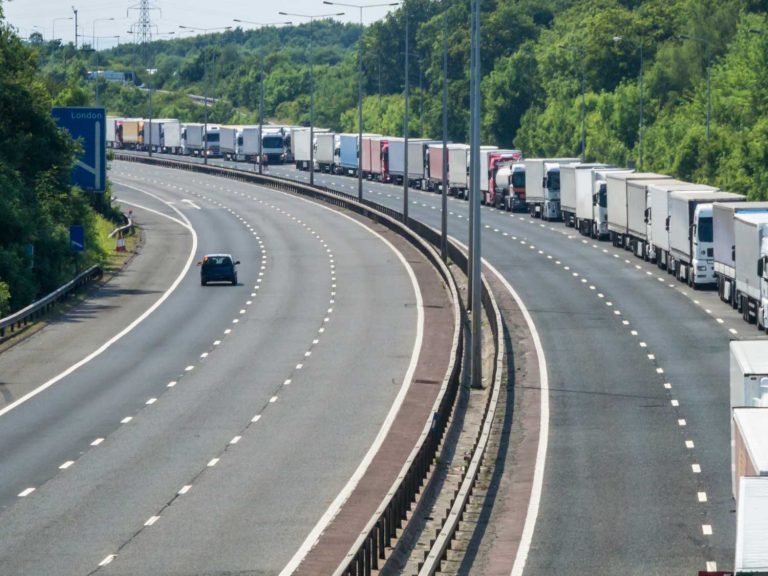
Date:
Operation Brock relaunched
Operation Brock is set to return, as part of plans to cope with potential queues at Channel Ports, as the government questions hauliers’ readiness for Brexit
Operation Brock is the planned traffic management system in Kent for use in the event of a no-deal Brexit. It supersedes Operation Stack, the previous plan that has been used in the past for temporary cross-Channel traffic problems.
The move to relaunch Operation Brock is contained in a consultation document published this week, by the government, which acknowledges that there could be border queues created by the UK’s exit from the EU in December, for at least the first six months of next year.
Mitigation plans proposed in the document include the relaunch of Operation Brock from December this year, which will allow up to 2,000 HGVs to be queued on the coast-bound carriageway between junctions 8 and 9 of the M20 and at other holding areas in Kent – while non-port traffic bypasses the queue via a contraflow.
The document also singles out hauliers as liable to “exacerbate” queues by not being “border ready” with all the necessary border documentation.
It plans to incentivise export hauliers, to ensure they are border-ready before setting off for the port by making use of the proposed Smart Freight Service, punishing those who do not have the right documentation with £300 fines and possible seizure of goods.
The document also proposes Kent Access Permits for hauliers, which will require drivers to stick to designated routes and penalise those that do not comply.
There is surprise that the onus for compliance will be placed on drivers, leaving them personally liable for a fine if they do not comply with the new rules.
Questions also remain about the readiness of the Smart Freight system, as it is still unclear when it will be available for testing.
Experts warn that the current proposals leave too many questions unanswered and very little time available to identify and implement solutions to keep the country trading.
In a statement accompanying the consultation, transport secretary Grant Shapps admitted. “This will be an important moment of change, and there is at least initially a risk of some additional friction at the border – notably if goods arrive without having completed the necessary customs and other processes.”
“It is thus important that we put in place plans both to minimise the risk of disruption and to mitigate its impact should it occur. And we need of course to have a particular focus in that context on the Short Straits, given the volume of traffic that moves both on the ferries leaving Dover and through the Channel Tunnel.”
